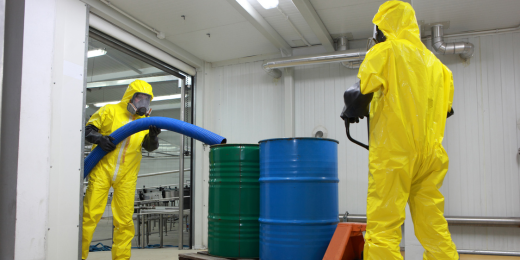Reclaim Waste for Dummies
Reclaim Waste for Dummies
Blog Article
Top Guidelines Of Reclaim Waste
Table of ContentsThe Greatest Guide To Reclaim WasteAll About Reclaim WasteThe Greatest Guide To Reclaim WasteNot known Facts About Reclaim WasteNot known Factual Statements About Reclaim Waste
Check out the types, incidents, and forms of fluid waste. Domestic sewer waste refers to the waste and products from a household septic system. This kind of waste is produced by human beings in residences, colleges, and other structures. This only consists of septic systems that have a drain field. The appropriate management and disposal of residential sewer waste require liquid waste to be moved to a sewer treatment plant where the correct methods and devices are put on cleanse and get rid of waste.
Industrial waste frequently consists of prospective hazards, such as flammable products or a mixture of fluid and strong waste items, and needs an advanced and thorough disposal procedure. The disposal of industrial waste typically involves the purification of waste prior to transport to make sure safe and appropriate disposal. Industrial waste is developed from results and drainage of commercial processes and production.
This sort of waste can not utilize the very same sewer monitoring transport or procedures as septic or business fluids. The hazardous waste monitoring process requires the assessment and screening of liquid waste before it undertakes the disposal process (liquid waste disposal melbourne). Overflow waste is the liquid waste that originates from drainage and excess stormwater in extremely populated locations or cities
Overflow waste can trigger contamination and flooding if not dealt with appropriately. Find out more concerning drain cleaning and waste management. Ensuring appropriate waste management can prevent disasters and minimize environmental harm. Both people in household settings and experts in commercial or production markets can take advantage of understanding the processes and regulations of fluid waste administration.
Get This Report about Reclaim Waste
Call PROS Services today to find out about our waste management and disposal services and the correct ways to look after the fluid waste you generate.
(https://reclaimwaste1.carrd.co/)This supposed 'wastewater' is not just a vital source yet, after therapy, will be released to our land, rivers or the ocean. Made use of water from bathrooms, showers, bathrooms, cooking area sinks, washings and commercial procedures is known as wastewater.

water used to cool down machinery or clean plant and devices). Stormwater, a form of wastewater, is runoff that moves from farming and urban locations such as roof coverings, parks, yards, roads, courses and gutters into stormwater drains, after rain. Stormwater streams neglected straight to neighborhood creeks or rivers, eventually getting to the sea.
How Reclaim Waste can Save You Time, Stress, and Money.
In Queensland, most wastewater is dealt with at sewage therapy plants. Wastewater is moved from residential or industrial sites via a system of sewage systems and pump stations, called sewage reticulation, to a sewer treatment plant. City governments develop, keep and operate most sewer treatment plants. Operators are certified under the Environmental Defense Act 1994 to discharge cured wastewater at an acceptable environmental requirement into waterways.
The Division of Natural Resources recommends city governments concerning managing, operating and maintaining sewerage systems and therapy plants. In unsewered locations, city governments might require householders to set up private or house sewage treatment systems to deal with domestic wastewater from toilets, cooking areas, washrooms and washings. The Department of Natural Resources authorizes using home systems when they are shown to be effective.
Many stormwater gets no treatment. In some brand-new subdivisions, treatment of some stormwater to eliminate trash, sand and crushed rock has begun using gross contaminant traps. Wastewater treatment occurs in four stages: Removes solid matter. Bigger solids, such as plastics and various other things incorrectly released to sewage systems, are eliminated when wastewater is gone through screens.
Wastewater then moves into large containers where solids clear up and are eliminated as sludge. Oil and scum are skimmed from the surface. Makes use of tiny living microorganisms called micro-organisms to break down and remove staying liquified wastes and fine fragments. Micro-organisms and wastes are integrated in the sludge. Gets rid of nitrogen and phosphorus nutrients that could trigger algal blossoms in our rivers and you can try these out endanger marine life.
Reclaim Waste Fundamentals Explained
Nutrient removal is not readily available at all sewer therapy plants because it needs expensive specialist tools. Clear liquid effluent created after treatment might still contain disease-causing micro-organisms - industrial wastewater treatment.

The majority of wastewater streams right into the sewage system. Under the Act, regional governments carry out approvals and permits for ecologically relevant activities (ERAs) including wastewater releases that might have a neighborhood impact.
A Biased View of Reclaim Waste
Otherwise, examples are taken for lab analysis. Often many tests are needed to develop the levels of each of the various pollutants such as oils, heavy steels and chemicals in water. Surveillance gives accurate information about water high quality and can verify that licence problems are being fulfilled. The info obtained via surveillance provides the basis for making water quality choices.
Report this page